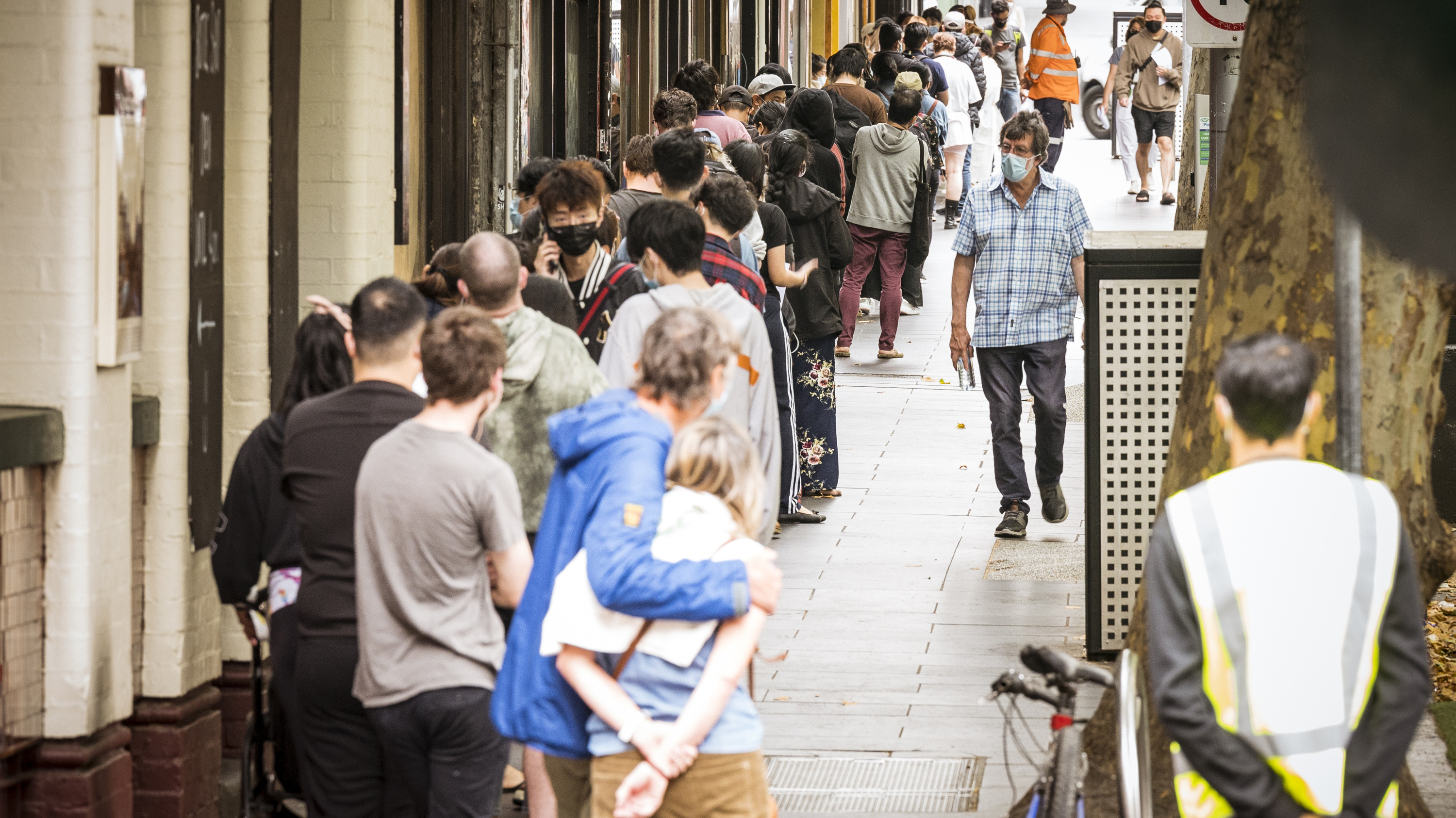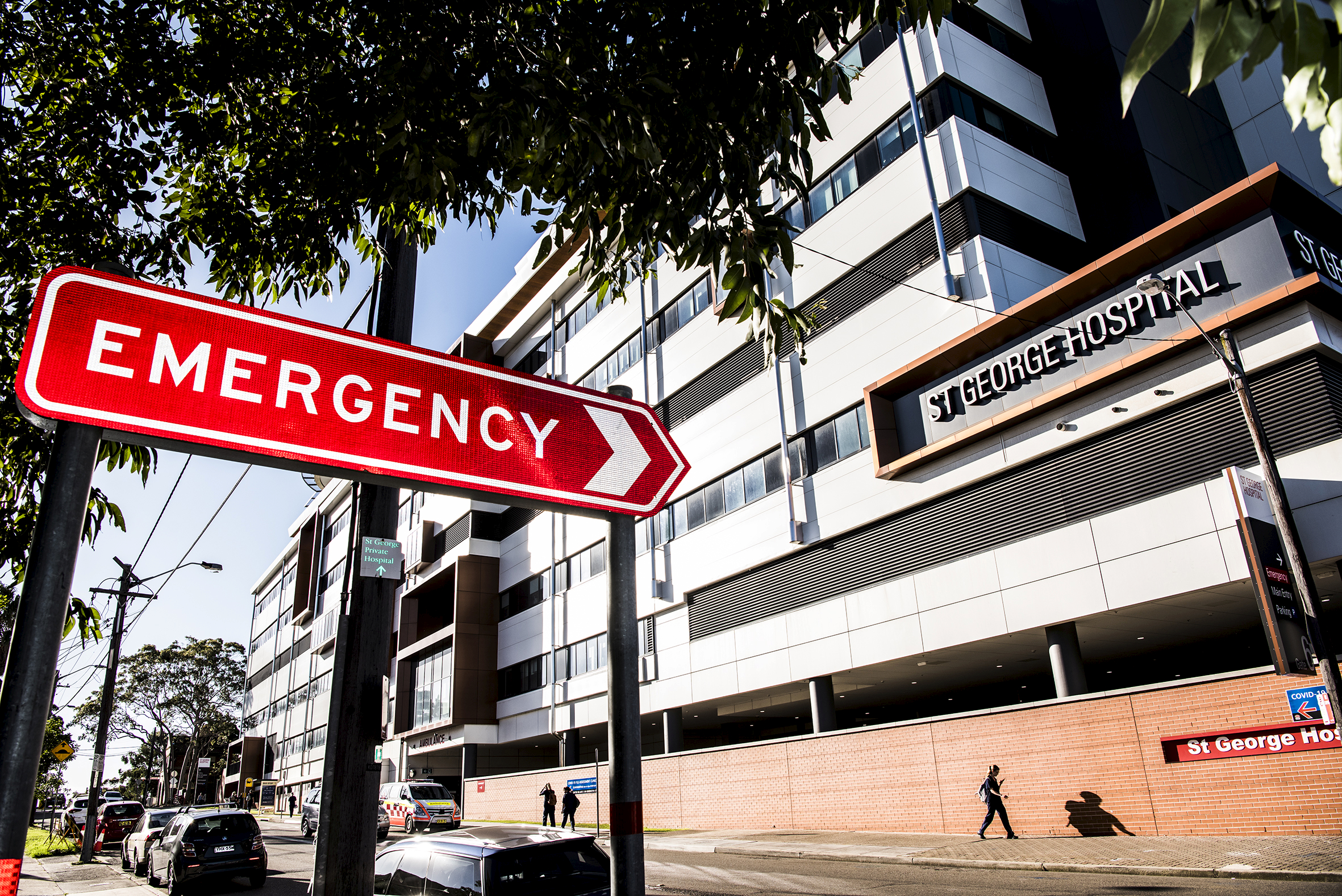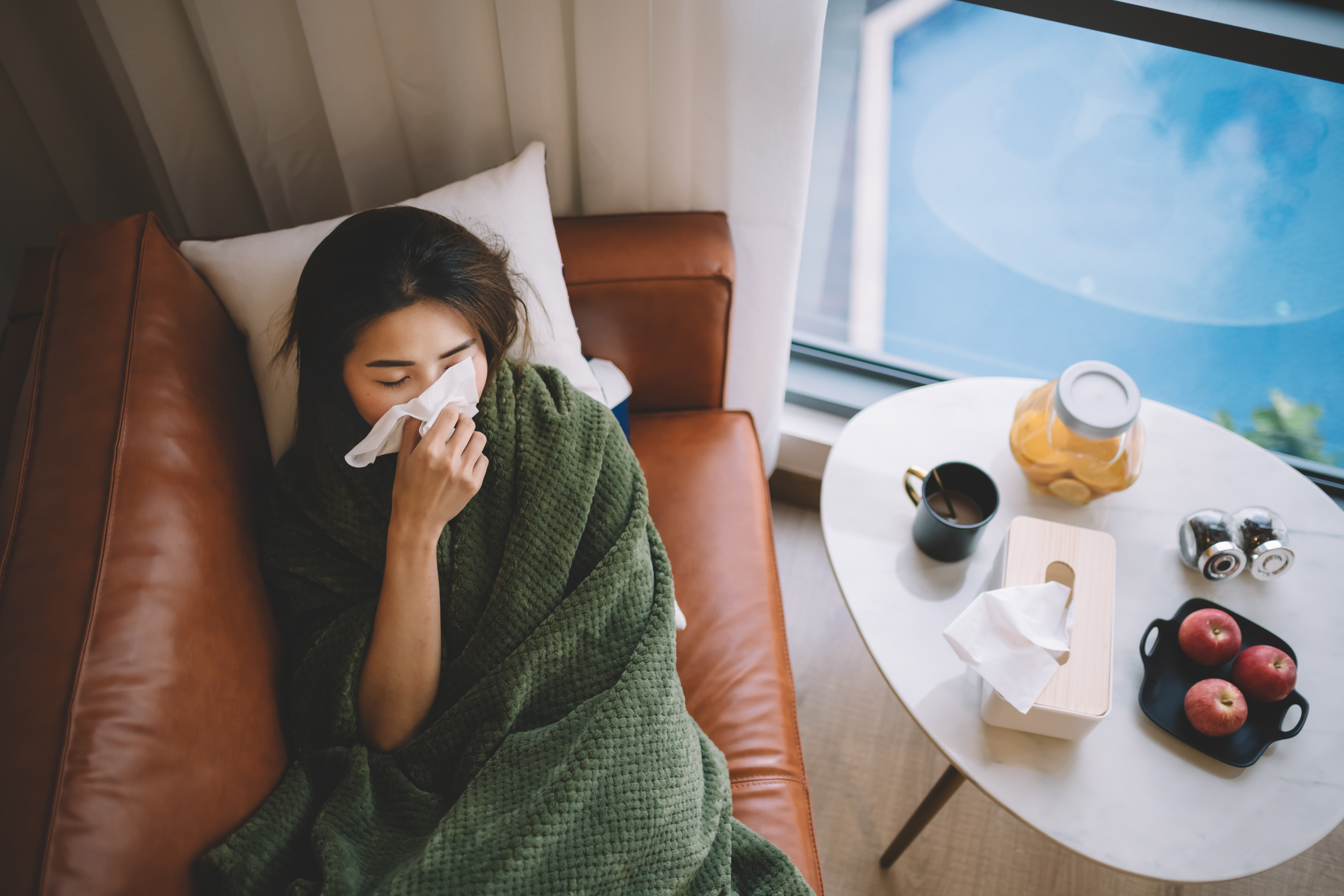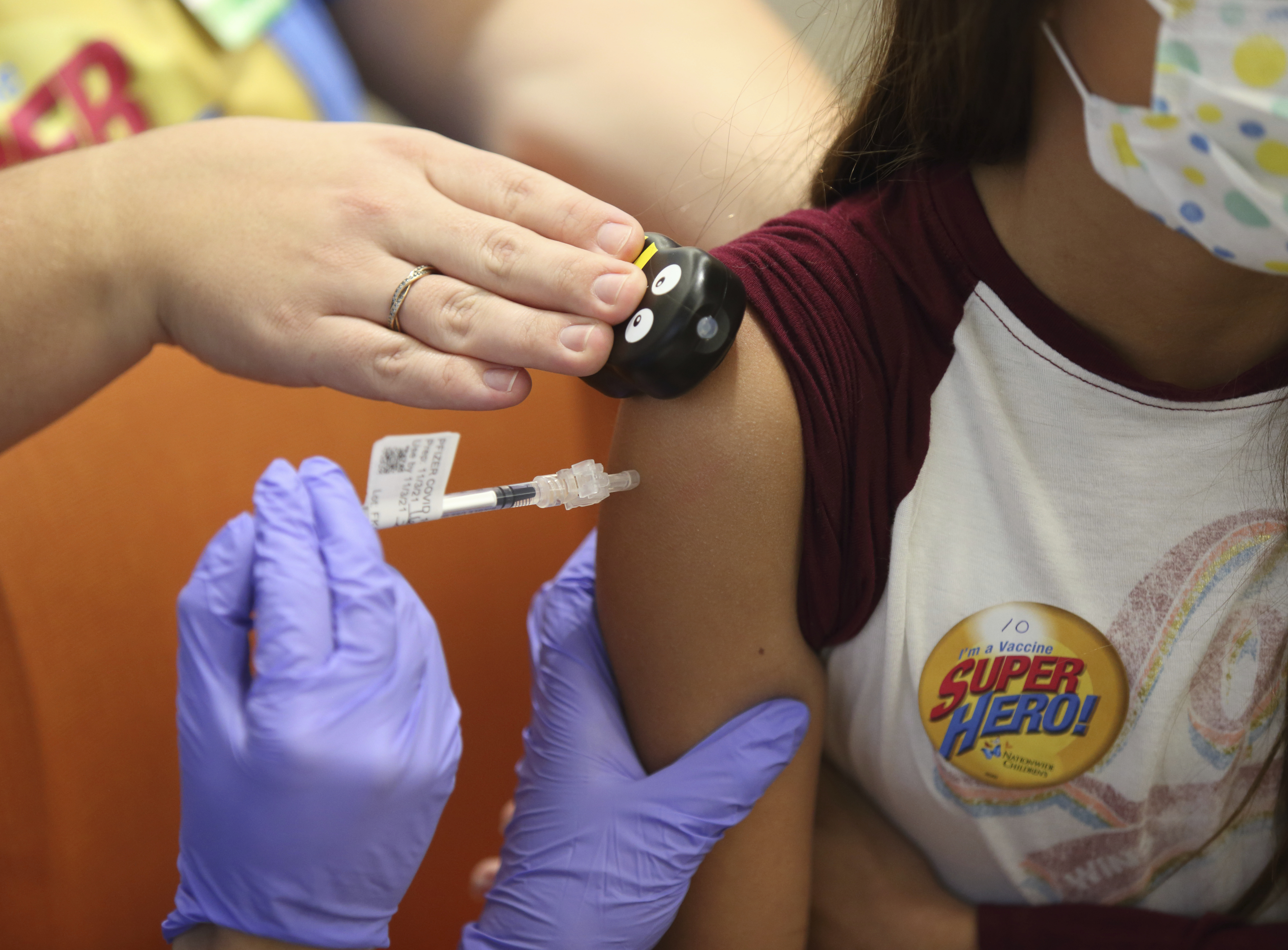By now, just about everyone in Australia will have known someone who has either contracted or been affected by COVID-19 and the Omicron variant.
The super transmissible strain shows no signs of slowing down, with tens of thousands of new infections being recorded across the country every day.
The likelihood of contracting the virus during Australia's current wave is high, according to our health experts, but how do we go about caring for ourselves when do?
LIVE UPDATES: Alarming spike as calls grow for free RAT tests

As we know, symptoms can range from barely detectable, to similar to a bad flu or in worst can scenarios, they might require hospitalisation and even ventilation.
If you're treating your illness at home, we've put together a list of answers to some commonly asked questions.
What should I do right away if I suspect I have contracted COVID-19?
To start, you should determine why you think you may have contracted the disease. If you're a close contact - somebody who has shared more than four hours in a home or homelike environment - of a confirmed positive case and you do have symptoms, you should immediately seek a PCR test and isolate for seven days.
READ MORE: When will Australia reach the peak of Omicron cases?
If you're a close contact but are showing no symptoms, then seek a rapid antigen test (RAT). If that returns a positive result, seek a PCR test and isolate.
If your RAT is negative, you do not need a PCR test, but you must still isolate for seven days from the date of exposure, as symptoms may show later. On day six, you can take another RAT, and leave isolation if that one negative.
A full explainer on close contact information can be found here.
When should I seek medical assistance?
According to the Australian Department of Health, certain people are more susceptible to severe illness after contracting COVID-19.
If you are obese, suffer from severe, chronic or complex medical conditions, have diabetes, are immunocompromised or live with a severe mental illness, you are advised to reach out to a health physician for personal advice on how to manage your symptoms.

If you are over the age of 65, you are advised to have your COVID-19 diagnosis treated from hospital.
READ MORE: Food shortage in China's locked-down city of 13m
If you experience shortness of breath, loss of appetite, dizziness, confusion, persistent pain or pressure in the chest, extreme high temperature, reduced consciousness or cold or pale skin while managing your diagnosis from home, you must immediately seek medical assistance.
How long are my symptoms likely to last?
COVID-19 symptoms can appear anywhere from between one to 14 days after the infection date. According to most reports out of Australia, people are most likely to experience symptoms from between three to five days after the initial infection.
There is no specific end date for when symptoms will stop showing, however for the majority of heathy people who have contracted the virus, in two weeks they will have returned to normal.
Long COVID - where symptoms persist beyond four weeks - may require additional treatment. The Department of Health has provided additional information on long COVID here.

What are some remedies for treating the virus at home?
Much like treating the common cold of flu, mild symptoms of COVID-19 can be managed in a similar way at home.
Regular doses of paracetamol or ibuprofen can be used to relieve pain and lower fevers. Lozenges can be used to sooth symptoms of a sore throat, as well as products containing electrolytes, and regular intake of fluids to keep the body hydrated.
READ MORE: 'No silver bullet': PM stands firm on rapid tests as Labor calls for them to be free
Other methods such as breathing in steam using a vaporiser and applying a damp cloth to the forehead may also relieve some discomfort.
More details on how to manage specific symptoms and pain can be found here.
What should I avoid while sick?
While recovering from COVID-19, it's important that you let your body rest. While vaccinations will reduce the severity of the disease, your body needs time to combat the infection and lots of sleep and recuperation is essential.
Specific things to avoid include: strenuous activities, exercise, alcohol and drinks with high levels of caffeine.
How about treating children?
Children are less likely to become severely unwell with COVID-19, however it's still important that symptoms are monitored closely for irregularities and medical advice is sought should the sickness worsen.
If your child is immunocompromised or suffers from any existing health conditions, seek advice from a practitioner immediately for personal information on how to manage your child's illness.
The Australian Government has released a fact sheet on how to care for a child with COVID-19, which can be found here.

When am I able to leave isolation and return to normal life?
A confirmed positive COVID-19 case will have to isolate for seven days starting from the date they tested positive to the PCR test.
If you don't have symptoms at the end of your isolation, then there is no need to return a second negative test and you are free to leave.
However, if you do show symptoms at the end of your isolation period, you will need to have a PCR test to confirm the virus has left your system.
These rules apply to Victoria, NSW, SA, ACT and Queensland.
